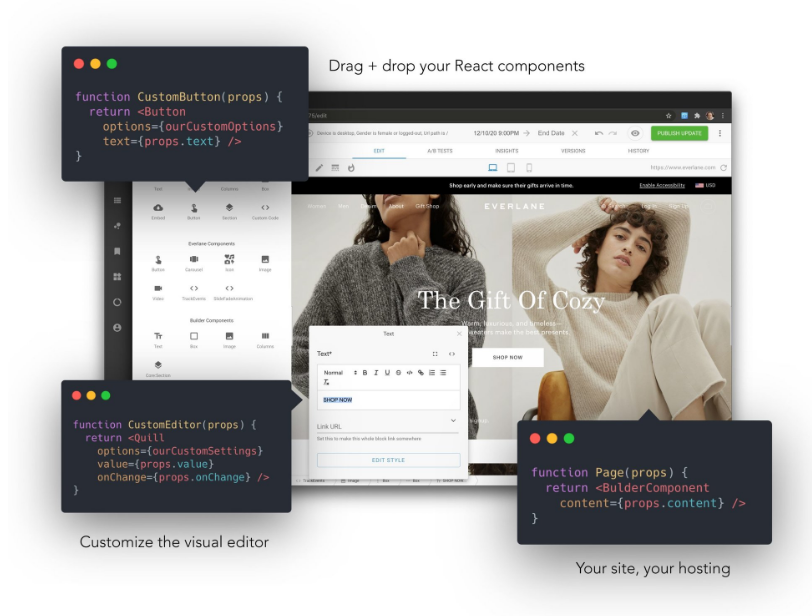Builder.io Builds a Web and eCommerce Pages with Drag and Drop
Builder.io is a free open-source framework agonistic library for building and design stylish web pages with drag and drop.
It is presented as a visual CMS library for building advanced rich web pages, and eCommerce components for enterprise apps.
Builder.io works seamlessly with React, Vue, Angular and several other frameworks.
Builder.io offers an API-driven UI that allows developers to:
- Decouple page updates from deploys
- Schedule, a/b test, and personalize via APIs
- Reduce code + increase composability
The project is developed and maintained by many developers. It receives regular updates and bug fixes.
Features
- Super lightweight library.
- Clean API-driven code.
- Supports React, Angular and Vue.
- Highly customizable layout.
- Easily to integrate into section building and page building.
- Seamless integration with CMS data.
- Great performance.
- The content is structured into pages, sections, and data.
- Offers a REST API
- Can be integrated with Figma
- Plays well with Next.js, Nuxt, Web Components Gatsby, and Shopify
- Comes with a Content API
- Full Webhook support
- GraphQL API

